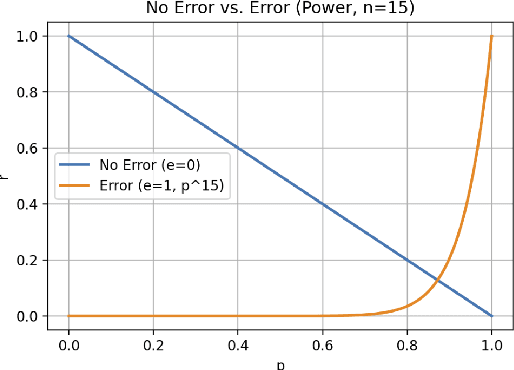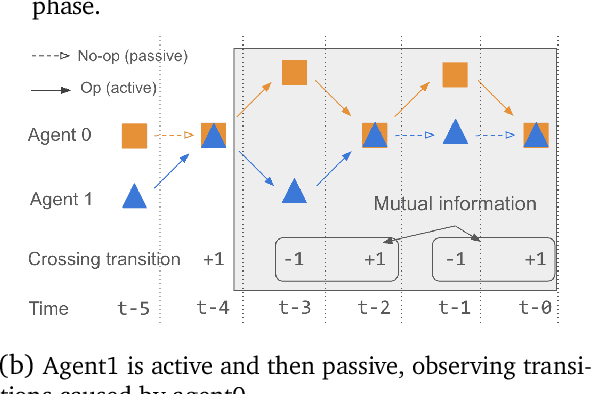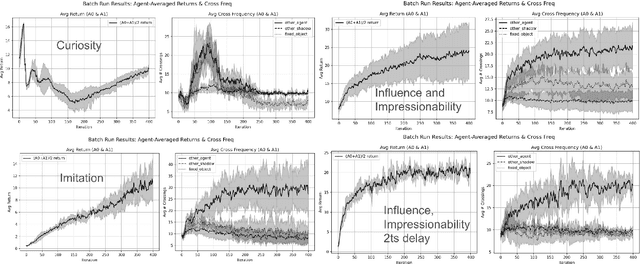Wanting to be Understood
Paper and Code
Apr 10, 2025



This paper explores an intrinsic motivation for mutual awareness, hypothesizing that humans possess a fundamental drive to understand and to be understood even in the absence of extrinsic rewards. Through simulations of the perceptual crossing paradigm, we explore the effect of various internal reward functions in reinforcement learning agents. The drive to understand is implemented as an active inference type artificial curiosity reward, whereas the drive to be understood is implemented through intrinsic rewards for imitation, influence/impressionability, and sub-reaction time anticipation of the other. Results indicate that while artificial curiosity alone does not lead to a preference for social interaction, rewards emphasizing reciprocal understanding successfully drive agents to prioritize interaction. We demonstrate that this intrinsic motivation can facilitate cooperation in tasks where only one agent receives extrinsic reward for the behaviour of the other.
 Add to Chrome
Add to Chrome Add to Firefox
Add to Firefox Add to Edge
Add to Edge